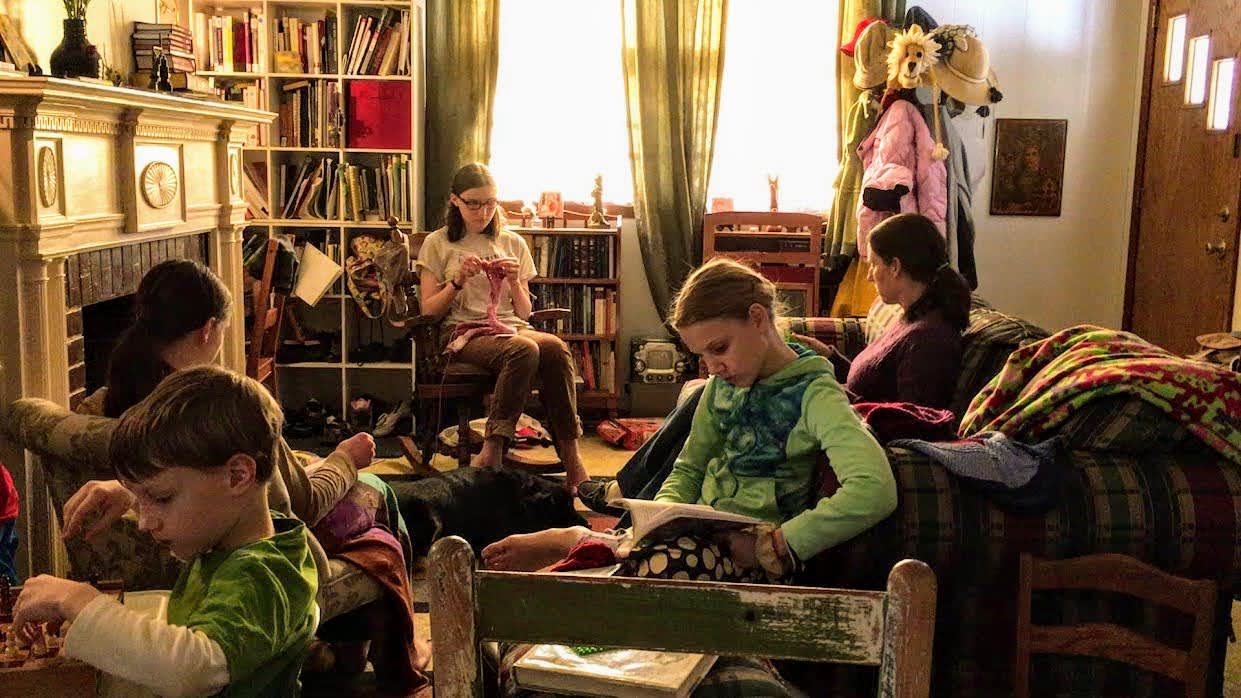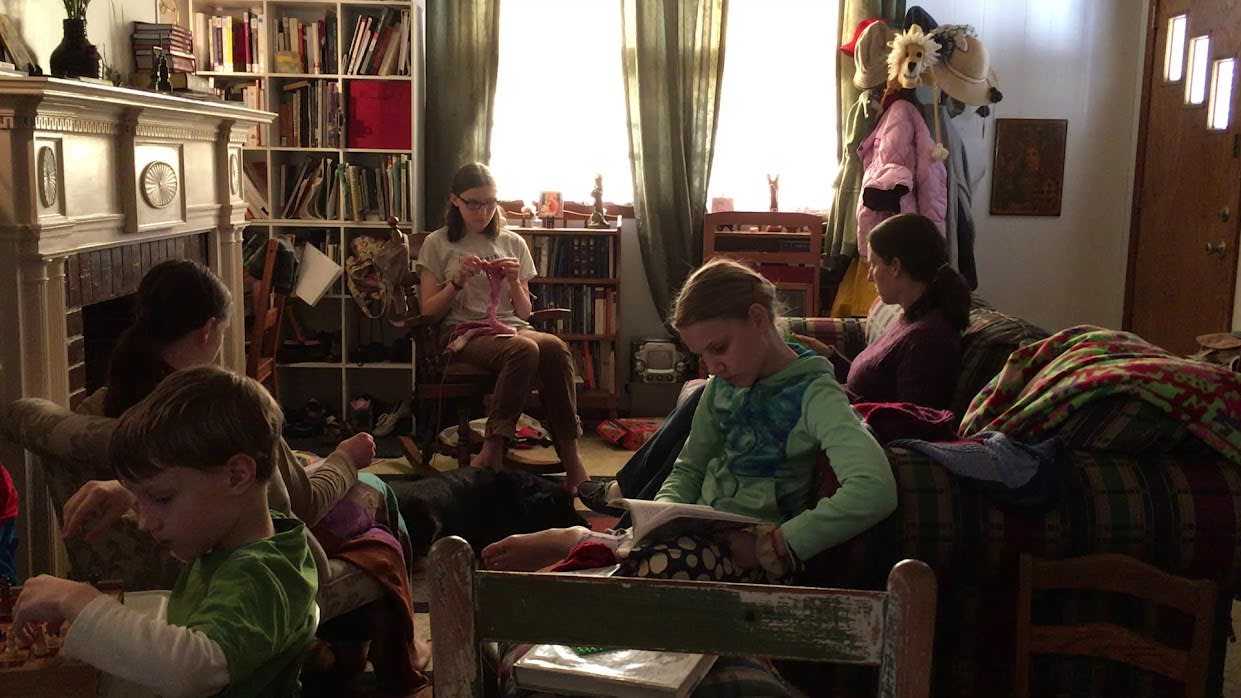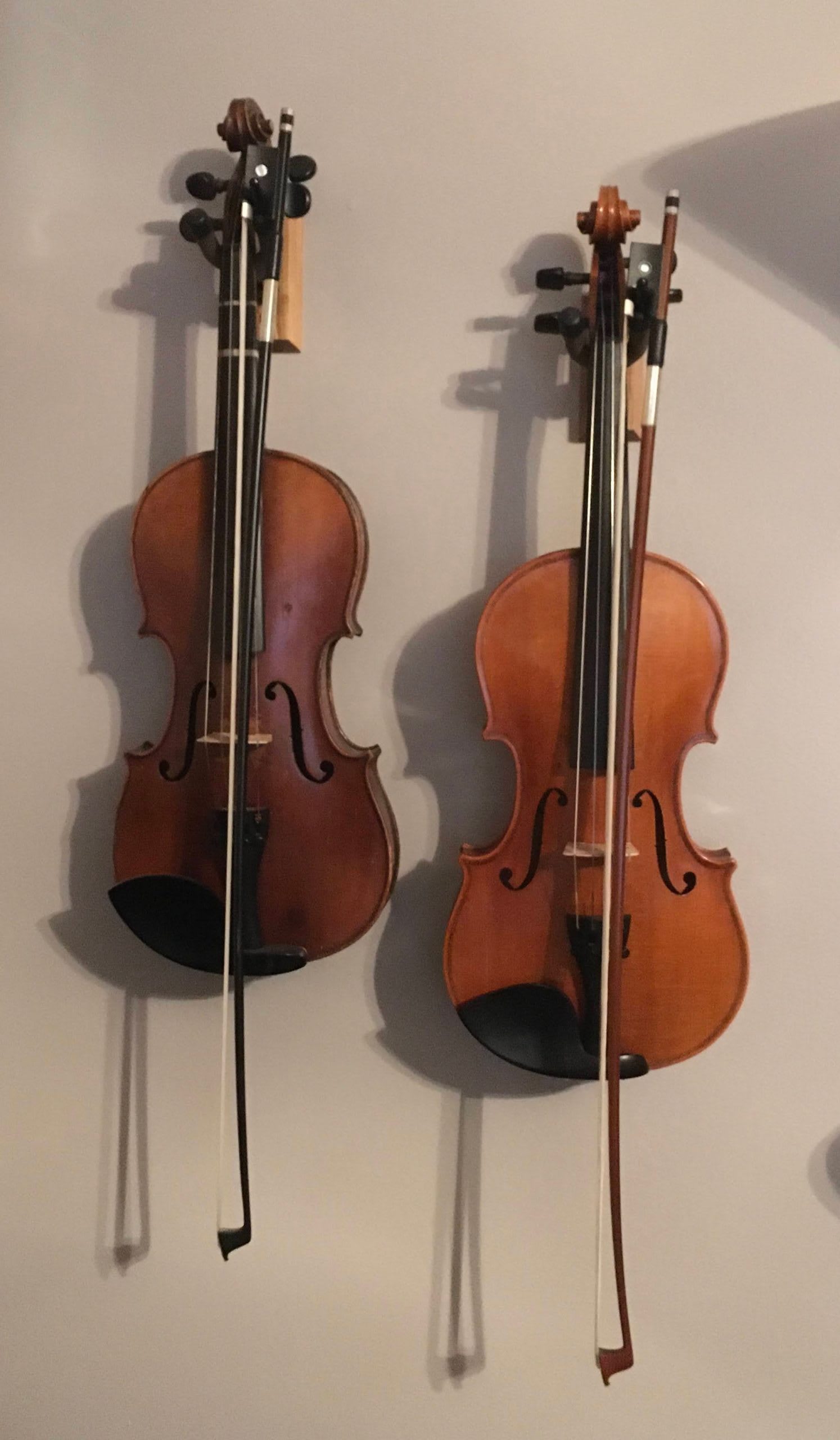September 18, 2021
You Don’t Have a Phone?

Our oldest daughter left our homeschool this year and started “real” high school. She’s been treking from class to class for about a month now, and this week her great secret was exposed: she doesn’t have a cell phone.
It came up in her debate class, while the teacher was apparently trying to draw the students’ attention to the seeming contradiction between considering “large corporations” “evil” and carrying iphones in their pockets. After a little while of this, Lucy raised her hand and ratted herself out. She didn’t even blame her parents for this ridiculous circumstance. Apparently the teacher was at a bit of a loss – who was this strange child who had been sitting quietly in his classroom all these weeks without a phone?
Her teacher did ask her why she didn’t have a cell phone – every other child in the class does, and presumably nearly every other child in the school. She didn’t have a well-thought-out answer ready, but by the time she made it to the car line, she had some thoughts. Among them, that she doesn’t want to waste so much of her time on screens.
One thing we learned quickly when she started “real” school was that while we had prepared her reasonably well for the academic work, she was not up to speed on the technology the modern student is expected to use. She had sent emails, but never had to deal with her own email account. Now there are Google Classrooms to be navigated. Powerpoints are an option for projects. And then she had to do an animation of mitosis for biology. After trying out three of four different programs, and spending hours trying to get all the pieces together, the project was still late. (So were several of her classmates’ projects, so apparently technology was not the only difficulty with that particular assignment.) She’s picking it all up quickly, but she’s also spending way more time on screens than ever before. And as much as she’s enjoying the school experience, she doesn’t love the screens.

We have our own reasons for not offering our kids cell phones, of course. My husband and I both taught in one-to-one high schools (where the school gives every student a laptop and expects every teacher to use it in their classroom) and we saw what unfettered access does. At best, it’s a distraction. At worst, it is a gateway to sin and self-loathing. (See any of the recent news reports on Facebook, Instagram, and teen body image, or this article from the Atlantic for a start.) Being a teen is hard enough – who needs constant reminders of how beautiful and perfect other people are (or seem to be) for constant comparison?
We don’t need the science to tell us how addictive screens and particularly social media are – we see it every day. My suspicion is that the reason Lucy’s school allows cell phone use by students during lunch and breaks is that they simply can’t stop it. To keep a semblance of order on a campus crawling with 2,000 teenagers, you can’t go out looking for trouble. Think about what happens to an addict when the drug is removed; now imagine students with that itch in the back (or front) of their minds trying to focus on Algebra. Good luck.
It’s too bad, really, because one of the first experiences Lucy reported to us when she started school was how strange lunch was. Not because the cafeteria hadn’t quite worked out getting all the students through the lunch line before the lunch period was over. Not because they eat in their fifth-period class because of Covid contract tracing guidelines. It was strange because everyone else in her class, except the teacher, spent the whole of their lunch period staring at their phones.
This is a world we haven’t prepared our children for.
I don’t regret this choice, or intend to do anything differently. I’m stubbornly convinced that it’s better for our kids (not to mention myself) to interact with an admittedly limited number of people and objects in the real world than with a larger number through a screen. My hope is that our kids will learn to use the technology as tools, because we aren’t on a Luddite farming commune with next to no need to contact the outside world. To some extent our kids will have to live with the technology that now infuses our society. But that doesn’t mean the technology has to infuse every moment of their lives, as well.
It’s a difficult line to walk. I’m on social media (you may have gotten to this blog that way, in fact) because it does have the power to connect. If I had to write out and mimeograph a newsletter every week instead of blogging…I probably wouldn’t. I’ve done numerous Zoom meetings and classes, and learned a lot that I wouldn’t have had an opportunity to otherwise. On the other hand, the amount of will-power it takes not to tumble into the social media time vortex is sometimes more than I possess. And if I can’t do it, why should I expect my children’s teenage brains, which are biologically less able to think long-term and correctly gauge risk, to be able to make better decisions than I can?
Our kids won’t be getting phones any time soon, at least not smart phones. Will it make their social lives harder? Absolutely, at least in how “connected” they will be able to be to their friends. On the other hand, maybe it will be easier to be able to walk away from a bully and not see their messages on the last thing most teens see before they go to bed at night.
There is a selfish motive behind all this, too. We happen to really, really like our kids. We like to see their faces. We like to talk to them. We don’t want them to have the blue zombie glow going on all the time. And while I understand the importance of peers to the teenager’s emotional development, I also think there can be too much of a good thing.
Especially now that our oldest spends so much of the day away from the family, those hours in the evenings and weekends that we have together are precious, and I intend to guard them jealously. Not just because Lucy is still my child and it is still my responsibility (and joy!) to form her into an adult, but because I want her to have that down time that allows for meandering thoughts, reading for pleasure, practicing calligraphy or drawing or baking. I know that she values these things, and I want to do what I can to help her have the time for them. Keeping her technology use to a minimum goes a long way towards that goal.


It feels a little ridiculous to be writing this alone in my room, the blue light from my laptop shining on my face. I spend more hours than I’d like on screens myself. But my hope is that it can stay in its proper place: a tool, useful for some things, but not a good in itself.








